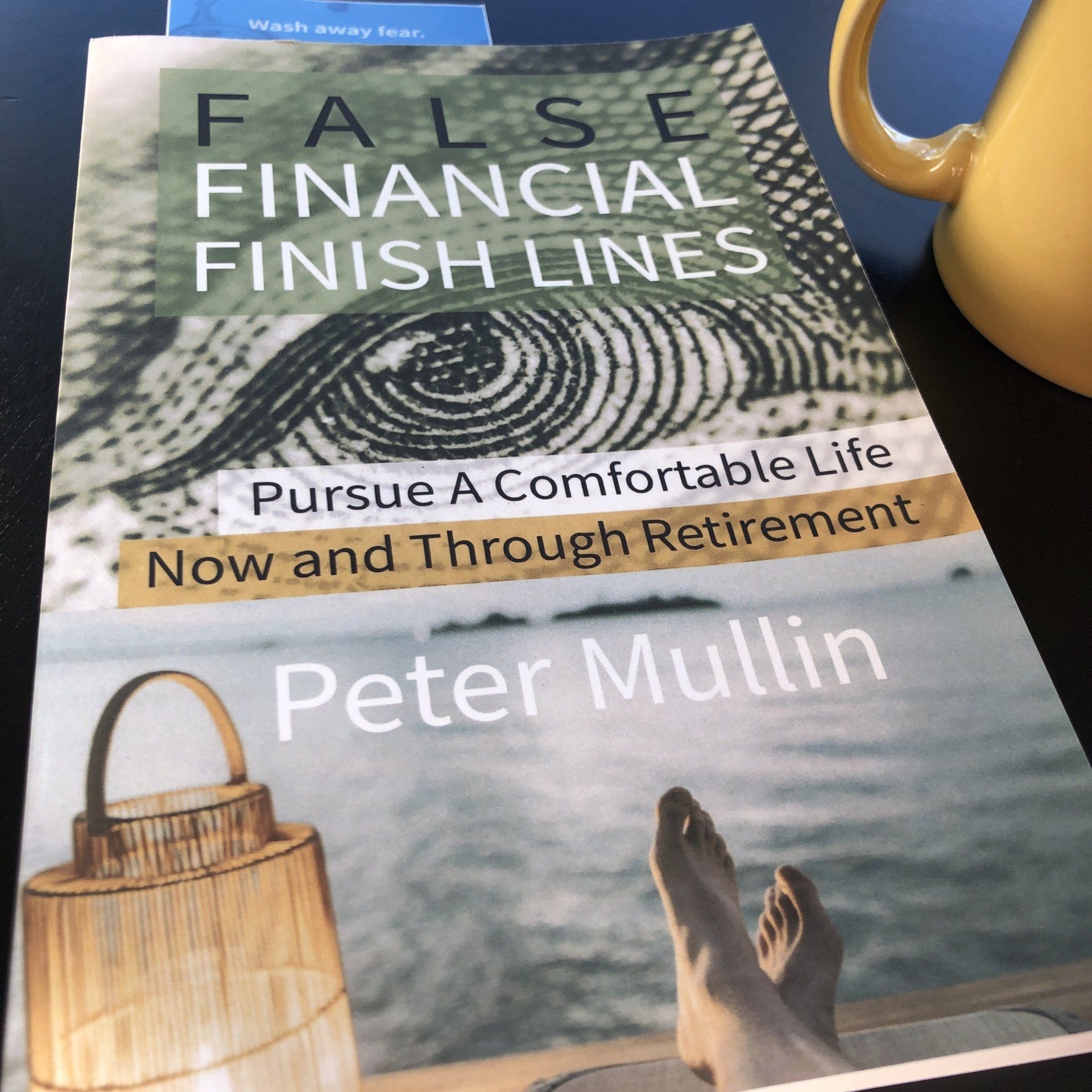Peter Mullin, Financial Author and Speaker
Peter Mullin, Financial Author and Speaker
Peter Mullin, Financial Author and Speaker
Peter Mullin was born in Saint Cloud, MN. He attended Saint John’s University (Collegeville, Minn.) where he developed his passion for storytelling and an entrepreneurial spirit.
Peter is an Eagle Scout from Troop 106 in Saint Cloud, Minnesota. He grew up in a family of 13 people. Have you ever heard of a triple-decker bunk bed?
He and his wife are members of Mary Queen of Peace Catholic Church in their town of Rogers. They serve as members of the Stewardship Committee. They support education, animals, and social causes through their giving.
Peter and his wife spent three years in Kansas City. They soaked up the best BBQ and observed the Kansas City Royals win the World Series. During this time Peter flew back-and-forth to build up his financial consulting practice. They brought their first and only child, Eli, back to Minnesota with them from Kansas City.
Aside from cooking and writing guitar songs, Peter is an author. He is an acute observer of life. Peter has authored two books. Peter’s second book, False Financial Finish Lines , evokes his attitude toward life. Life is like a rolling river, and indeed about the journey. There are many stops along the way that can tempt us to put our feet up. Or worse. Life’s moments can tempt us to stop growing. Typically when we push a little further, we can discover an enriching purpose. Peter has a passion for communicating sound and simple financial advice. He strives to relate it to his reader’s life.
Peter has been a financial advisor since 2008, currently registered with LPL Financial. Peter Mullin has collected a treasure trove of stories. He has seen how life changes. These crossroads in life are where critical choices can come together to form new and exciting experiences.
He believes sound finances are a resource that can be accrued through healthy habits. Money can enable families and businesses to live a purposeful and prosperous life.
Securities offered through LPL Financial. Member FINRA/SIPC.
- Mullin's take on the "4% Retirement Rule"
- Navigate "Bad Portfolio Weather"
- Tips to Optimize Social Security





Articles and Assets
What are your Priorities?
Well it’s the end of the year. I just searched on Google for “market outlook 2018.” I came up with a little over 58-million “results.”
So should you be investing in stocks in 2018? The quick answer: It’s likely a prudent part of your portfolio. But it depends on your circumstances, right?
It’s apparently popular to throw your hat in the ring.
A mantra that you hear among disciplined professionals is to “stay the course.”
Then you hear “sell high, buy low.”
Who’s right?
The relief of a disciplined strategy is that it can be tailored to you. And tailor we think you should.
Yes, it’s possible that an investor may not utilize stocks in their portfolio at all. Or you may decide to go “all in” with a diversified stock portfolio.
(Side effects from tailoring a strategy may include increased confidence & persistence, apathy toward daily market reports, and increased focus on what really matters.)
Let’s begin with the “Why” of investing for you. Then you can request 15-minutes on the phone discuss your “how.”
So “Why Should You Invest”
Life changes and our “why” of investing ought to transform with life. Some invest for sport – they like the risk/reward of investing – they’re in it for the thrill. I don’t hang with this crowd.
Most of us ought to invest for things we want. Our money & our goals are serious. By investing in a diversified portfolio we can pursue things we want.
1. Living A Comfortable Retirement: Retirement is a noun. It’s up to you to really design and live a retirement that reflects you.
2. Purchasing a Home: Home is a place to live. It can take a down payment.
3. Passing an Inheritance on to Family:
4. Student Loan Shield: This idea is important for many Millennial graduates. Student loans can dominate your budget. But instead of accelerating those payments, what if you paid your required payments, and then invested the additional money that you were going to pay against your loan balance?
5. Emergency Reserves: You probably have read that it’s prudent to keep a relative healthy amount of cash in your checking/savings. Once you’ve achieved that, then you can consider investing additional funds. Go a step further and consider a non-retirement account for you and your house. You can spend this on cars, vacations or use it just as described in #4.
The Dow Jones has seen positive results, so far, in 2017. It’s unusual and sort of uncomfortable as the independent financial advisor. Why is it uncomfortable?
What would sting & linger longer? Finding $20 in the parking lot? Or finding a $20 parking fine on your windshield?
We’ve been finding a lot of metaphorical “$20’s” (i.e. “positive results”) in our portfolios this year. So the second we find a parking fine (or a few in a row) we’ll be sure to ask if stocks are still the right place to park our money.
Complacency can work against us, Dear Clients. Just keep recalling your long-haul strategy and your “why” of investing.
***
Peter Mullin is an independent financial advisor registered through LPL Financial. He lives in Rogers, MN with his family. He was born and raised in St. Cloud, MN. Mullin Wealth Management is located in Waite Park, MN.
The opinions voiced in this material are for general information only and are not intended to provide specific advice or recommendations for any individual.
Investing involves risk including loss of principal.
There is no guarantee that a diversified portfolio will enhance overall returns or outperform a non-diversified portfolio. Diversification does not protect against market risk.
All performance referenced is historical and is no guarantee of future results.
All indices are unmanaged and may not be invested into directly. No strategy assures success or protects against loss.










